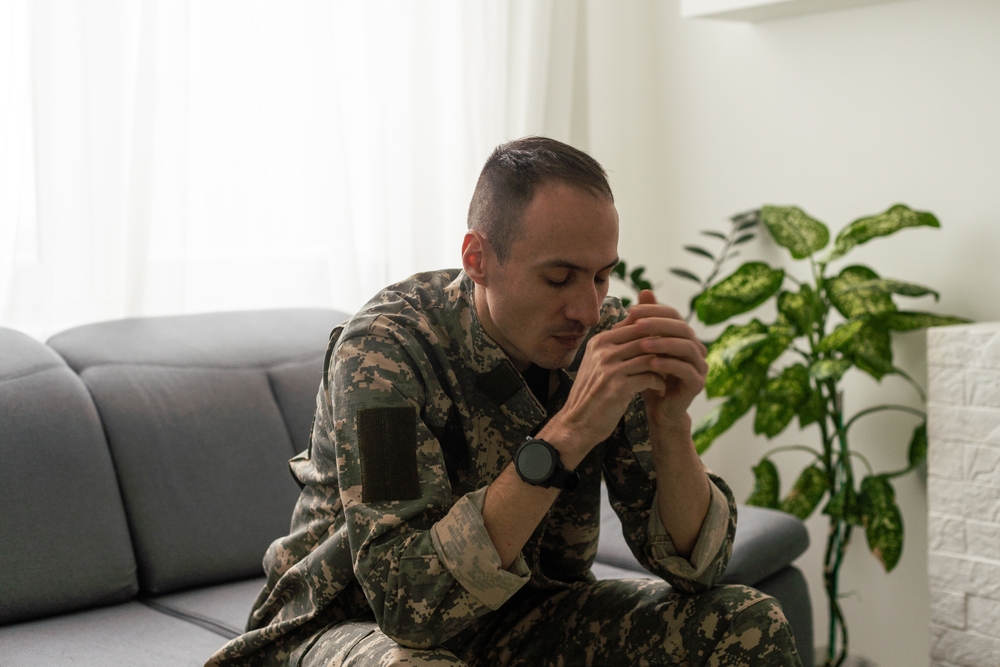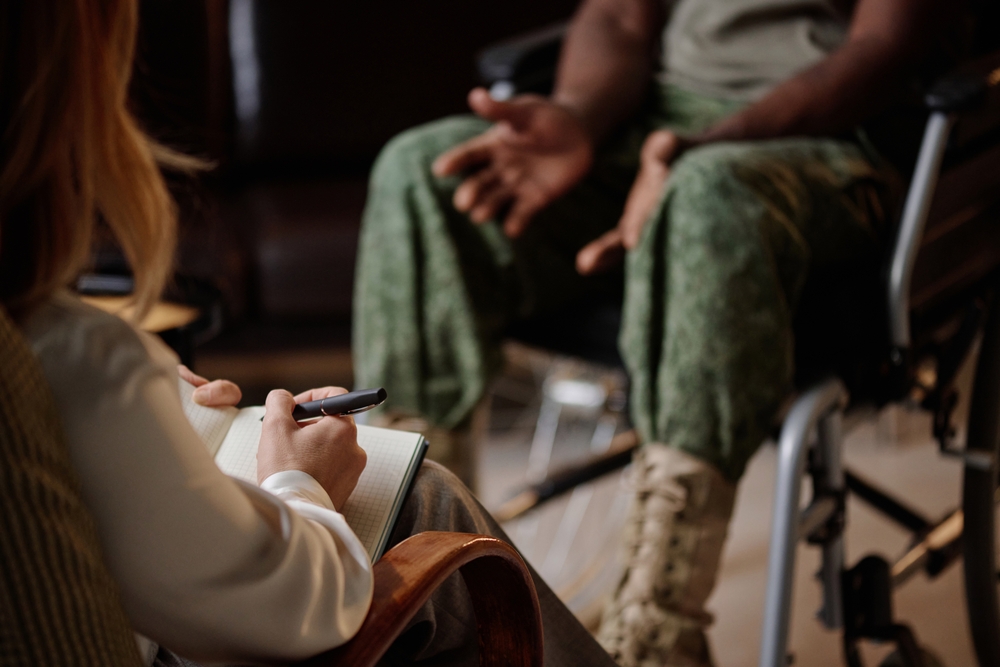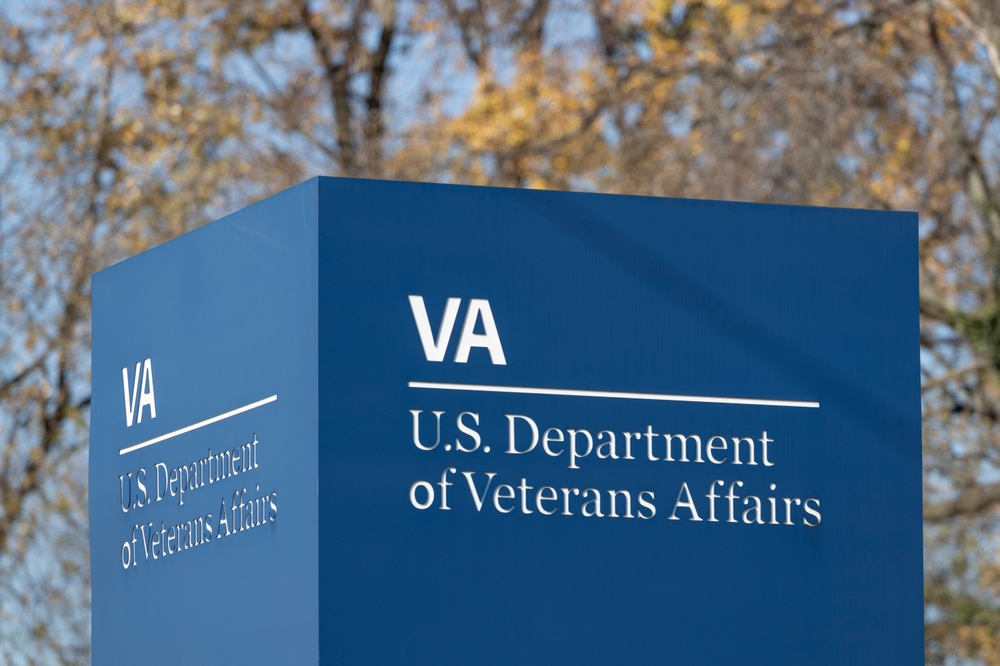Addiction Treatment Programs for Veterans
U.S. military veterans from all branches of service–Army, Navy, Air Force, Coast Guard, Marine Corps, and Space Force–often face difficulties when transitioning from active military duty to civilian life. They sometimes need assistance to deal with physical or mental disabilities, or conditions such as post-traumatic stress disorder or substance abuse. According to Stop Soldier Suicide, a veteran created nonprofit organization, veterans have 72% higher suicide rates than individuals who have not served in the military. The 2020 National Veteran Suicide Prevention Annual Report found that more than 16 veterans are lost each day to suicide.

Drug rehab facilities that address the unique needs of military veterans by treating substance abuse along with co-occurring mental illnesses, such as post-traumatic stress disorder, are especially helpful. They provide the specialized care that veterans need. Often, drug rehabs that offer special veterans’ programs also offer treatment for active military personnel and military family members as well.
What Makes Veteran Drug Rehab Different?
Drug rehabs that offer specialized programs for veterans recognize the unique needs of individuals who have experienced traumas that most other people never have to face. Specialized veteran mental health services includes addressing issues such as suicidality, substance abuse, anger, moral/spirituality crisis, and possibly chronic physical pain or brain injury-related neurocognitive problems.
Treatments and therapies often include trauma desensitization procedures, trauma-informed counseling, crisis care, and life-reconstructing strategies such as housing resource support, in addition to substance abuse treatment.
Veterans with Co-Occurring Disorders

The most common mental health challenges faced by military veterans are post-traumatic stress disorder (PTSD) and depression. A study sponsored by the National Institutes of Health (NIH) in 2020 found that approximately 14-16% of military service personnel who served in Afghanistan or Iraq were diagnosed with PTSD or depression following their deployment. Traumatic brain injuries and substance use disorders were also reported. Often the addiction was part of a co-occurring disorder diagnosis.
Symptoms of post-traumatic stress disorder in military veterans include flashbacks of traumatic combat-related events, nightmares, sleep problems, and hypervigilance–an exaggerated awareness of surroundings and an unrealistic expectation of danger.
Symptoms of depression include low or sad mood, sleep problems, loss of interest in normal activities, fatigue, trouble concentrating, and feelings of worthlessness. Thoughts of suicide may also be present. Factors that are unique to military service, including stresses with leadership, promotion difficulties, or frequent changes in location or deployments, add to the risk for depression in veterans.
Treatments for Veterans in Drug Rehab
When veterans receive substance abuse or co-occurring addiction and mental health treatment, they need not only standard cognitive behavioral (talk) therapies, but also specialized therapies to deal with their unique traumas. Some specialized treatments that work for veterans include:
- Trauma-informed therapy: This approach desensitizes the veteran to trauma-related triggers, while they are in a safe environment. Eye movement desensitization and reprocessing (EMDR) is one example. In EMDR, the veteran recalls a trauma while simultaneously tracking an object from left to right with their eyes. This bilateral brain stimulation reduces the vividness and the intensity of a recalled traumatic memory.
- Narrative Therapy: In this model, a veteran tells the “story” of a traumatic experience, helps them to understand, accept, and make spiritual meaning about the experience.
- Electroconvulsive therapy(ECT): This approach is often a treatment of last resort for resistant depression. It is a medical procedure, done under anesthesia, whereby a brief electrical stimulation is introduced into the brain to “reset” brain activity. It has been shown to be effective in about 80% of cases, but it is not a permanent solution. Medication and/or counseling treatments need to be continued.
U.S. Government Department of Veterans Affairs (VA) Drug Rehab Services

The Department of Veterans Affairs (VA) operates Alcohol and Drug Dependence Rehabilitation programs at many VA facilities throughout the United States. These programs provide medical and mental health care, substance abuse treatment, and social service, vocational, and rehabilitation services, to alcohol/drug dependent veterans. They utilize a holistic approach that integrates mental health and substance abuse treatment with trauma care. They offer emergency health services, inpatient care, and outpatient substance abuse programs.
Some VA facilities provide peer specialists to assist veterans in their recovery. Peer specialists are veterans who have themselves experienced and recovered from mental health conditions, including addiction. They serve as role models and coaches to help veterans navigate the medical and social service components of their recovery. They help link veterans to community resources, and they encourage and mentor veterans as they acquire these outside services. Peer specialists get assigned to a veteran after the veteran has obtained a referral from their VA primary care doctor.
Examples of Private Veteran-Specific Drug Rehab Programs
There are a variety of addiction recovery programs available to address the unique needs and goals of military personnel, family members, and veterans. Some of the most popular are detailed below.
JourneyPure
JourneyPure is a CARF-accredited and LegitScript certified drug rehab group with 13 locations throughout Tennessee, Kentucky, and Florida. They provide specialty alcohol and drug programs for veterans in residential and outpatient settings. They offer medical detox, trauma therapy, individual and group counseling, family counseling, experiential and holistic therapies, housing resource support, and aftercare coordination.
Pyramid Healthcare
Pyramid Healthcare is a CARF-accredited drug rehab organization that operates 80 facilities in Pennsylvania, New Jersey, North Carolina, Maryland, and Georgia. They offer Pyramid Military Therapy and Recovery programs to treat trauma, substance abuse and mental health issues in residential settings with detox options. Therapies include cognitive therapies, trauma-informed therapies, holistic therapies, mindfulness training, and individual, group, and family counseling.
Sources:
- Stop Soldier Suicide (2021). Veteran Suicide Statistics. https://stopsoldiersuicide.org/vet-stats
- U.S. Department of Veterans Affairs: Office of Mental Health and Suicide Prevention (2022). National Veteran Suicide Prevention Annual Report. https://www.mentalhealth.va.gov > data-sheets > pdf
- National Institutes of Health (NIH) (2020). Veteran and Military Mental Health Issues. https://www.ncbi.nim.nih.gov > gov > books > NBK572092
- American Psychiatric Association (2024). What is Electroconvulsive therapy (ECT)? https://www.psychiatry.org/patients-families/ect
More Specialty Treatment Programs

Couples Rehab
Couples Rehab Programs: Recovering Together Programs provide specialized treatment to help partners struggling with alcohol or substance use. They aim …

Men’s Rehab
Men’s Drug Rehab Programs: What to Expect June is Men’s Health Month, which is a great opportunity to address men’s …

Women’s Rehab
Women’s Drug Rehab: Overcoming Addiction in a Supportive Environment According to the 2019 National Survey on Drug Use and Health …